Oldest Dhobi Khana of India is still operational in Kolkata
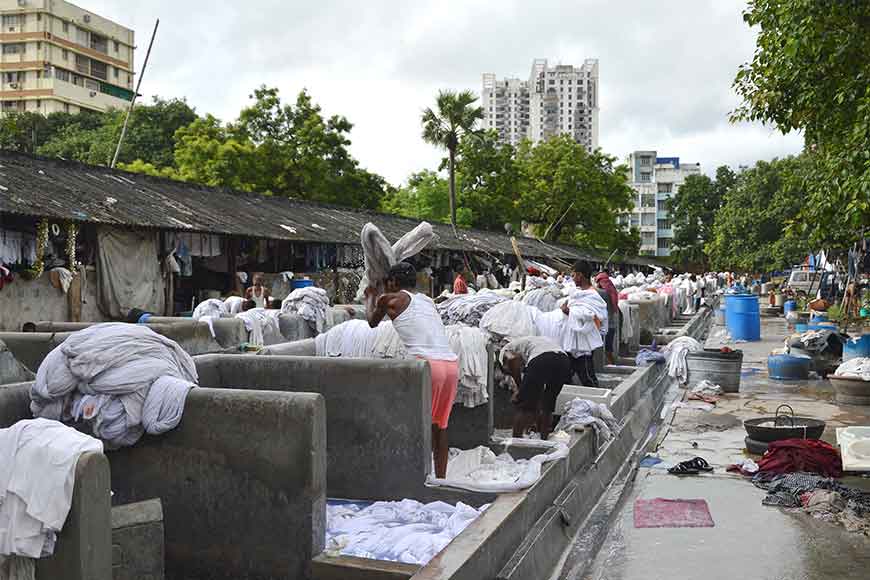
‘Dhobi par Dhobi basey, tab kapre par sabun pare’
This Hindi proverb means ‘when many dhobis compete, then only does soap reach the clothes’ (Christian Behar Proverb). It is believed the British Government of India took this proverb seriously and built dhobi ghats in India and the first picture that comes to our mind is that of Dhobi Ghat of Mumbai. The Mahalakshmi Dhobi Ghat, which is better known as Mumbai Dhobi Ghat was built by the British in 1890. But our Kolkata also has a Dhobi Ghat which is 115 years old (according to the wooden signboard) and the largest Dhobi ghat of India. On 15th August 1902 a dhobi khana was set up to serve laundry needs of the British. The South Dhobi-khana was the largest dhobi-khana of that era.
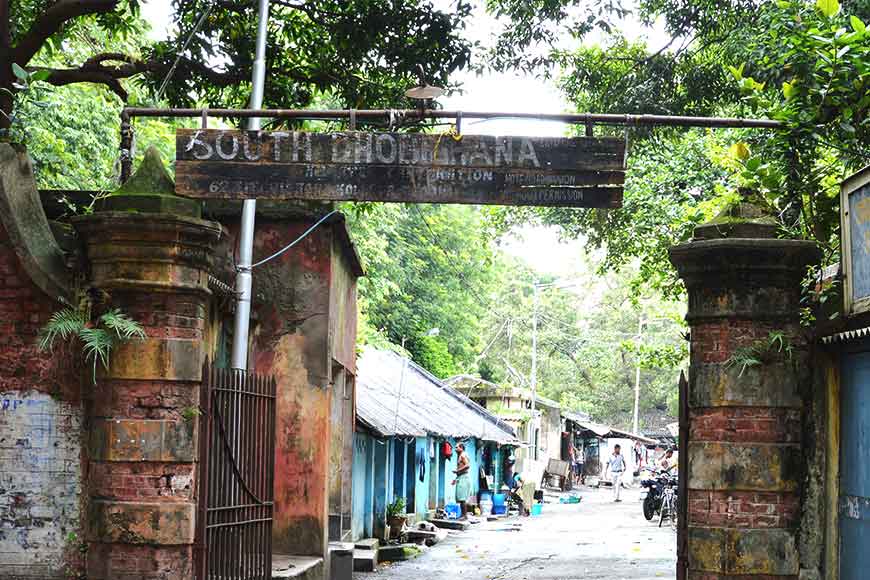
S.W. Goode, (an ICS) in his “Municipal Calcutta: Its Institutions in Their Origin And Growth” said that a proposal of construction of a public dhobi khana in Calcutta was taken in 1889. The land was accordingly acquired at No 3 Ulfatbagan Road at Kasiabagan, later renamed as Woodburn Park, at a cost of Rs. 32,000. But no further steps were taken until 1895, when an estimate of about Rs. 37,000 for building equipments was sanctioned. He writes: “In 1896-97 a building equipped with 100 wash stones and an ample supply of filtered water was constructed at a cost of Rs 23,400.” In 1906-7 the Calcutta Corporation accepted Mr. J.C. Galstaun’s offer to purchase the site of Ulfatbagan Dhobikhana because of the beautification of this area and Mr. Galstaun also agreed to rebuild the dhobi khana and set up its 100 wash stones on any site the Commissioners might select. This agreement became part of the elaborate settlement dealing with the old Kasaibagan burial ground.
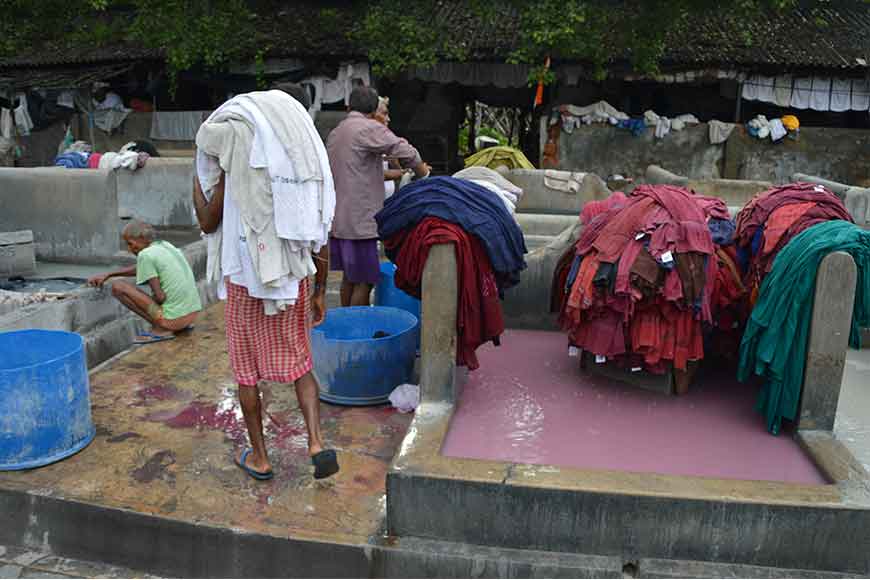
Incidentally, this burial ground was also occupied by the British Government in the year 1901 where lies the grave of Tipu Sultan’s son Wazir Ali and converted it into Woodburn Park after the name of Sir John Woodburn who played an important role in eradicating Plague. According to Mr. Goode there were many vexatious delays before the new Dhobi khana was constructed on the site acquired by the Corporation near the junction of Hazra and Lansdowne Road. It was set up on 24 acres land with 180 open-air stones, 167 of which were occupied throughout 1913-14. This dhobi khana had outshined its counterparts in Mumbai, Chennai and Delhi. Here the dhobis paid a monthly rent of Rs. 2 for each stone that they used and an additional Rs. 1 per month for their assistants.
Goode writes that dhobis were not allowed to use any chemicals except those authorised by the health officer, which possibly explains the presence of the soap and soda shop. Now there are 108 concrete washing stones, divided into 9 rows and each row has 20 washing stones where dhobis wash the clothes. The stone rolled from one generation to another. There are sheds where the ironing is done after drying the clothes. The Portuguese introduced the ironing of clothes and the Bengali word for ironing, ‘istri’ is derived from Portuguese language.
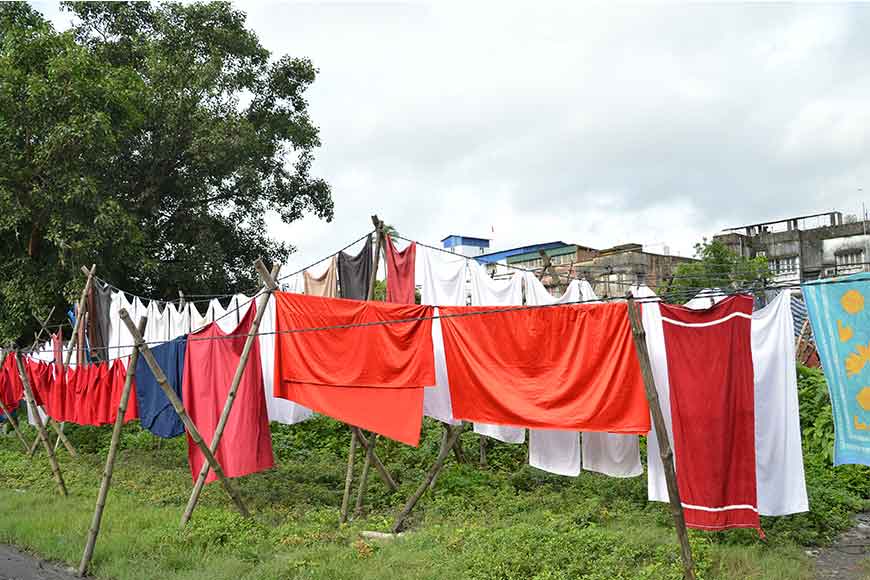
But the present address is 62, Ritchie Road and surprisingly the wooden Board at the entrance shows that the year of establishment is 15th August 1902. But according to Mr. Goode’s book it should be ‘1903-4’. In 1903-4 another dhobi khana with 20 wash stones was constructed in northern division (Kumar Dinendra Narayan Roy Street) at a cost of Rs. 10,500.
A decision was taken by the Calcutta Corporation in 1910 that a municipal steam washing plant would be installed to prevent the damage done to the clothes by the crude system of washing clothes by beating them on stones. The Machinery was obtained from England in 1914-15 and set up at a cost of Rs. 6925/-. A building was constructed at the Lansdowne dhobi khana at a cost of Rs. 4283/-. In the year 1913-14 the annual receipts from the North dhobi khana was Rs. 1069/- and from South dhobi khana was Rs. 6068/-. At that time the annual loss of the Corporation was Rs. 16,000. But to provide better service to the people of Calcutta. the Corporation accepted that loss.
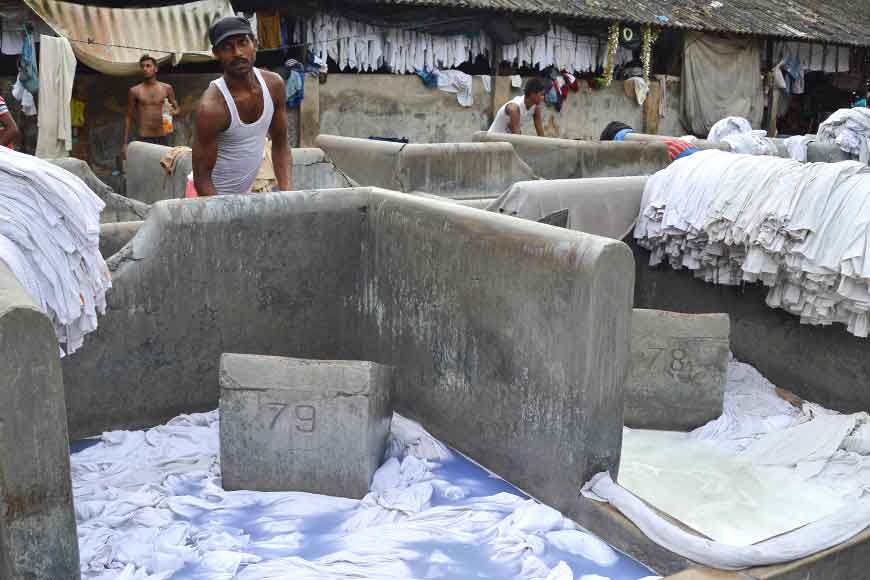
The dhobi khana falls under the purview of the health department of the Kolkata Municipal Corporation (KMC). Around 400 dhobis (washer men) work out of here from 10 in the morning to 5 in the evening, washing the dirty linen of Calcutta's hotels, hospitals, laundries and who knows what other places.









